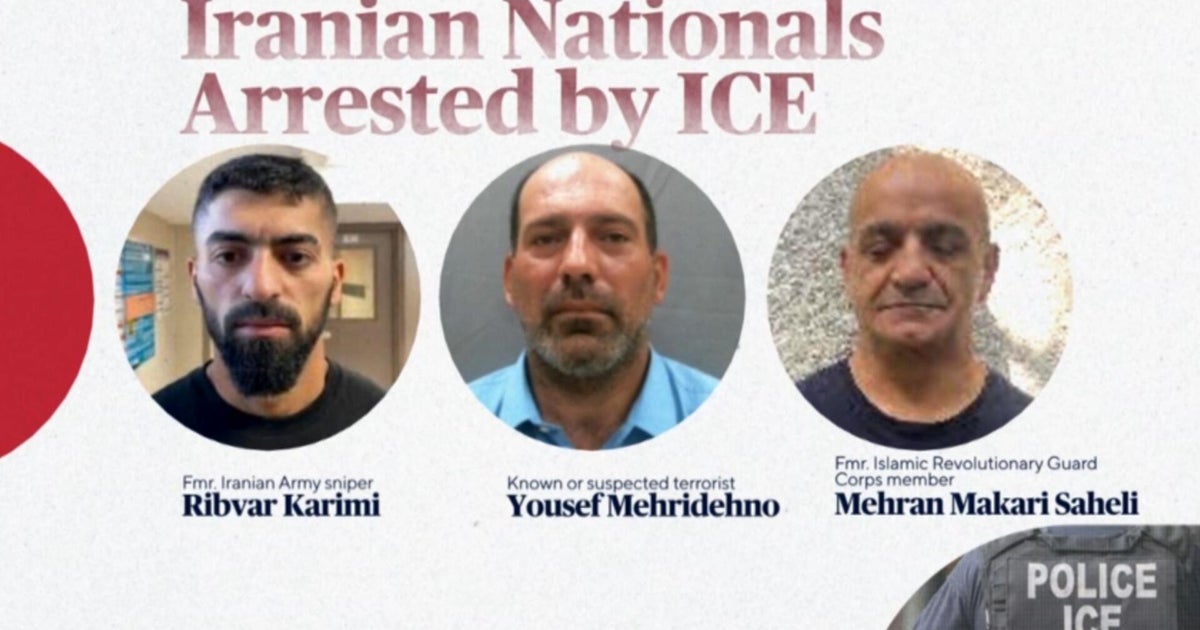The recent detention of eleven Iranian nationals over the course of just 48 hours marks a significant and contentious step in the ongoing immigration policies championed by the Trump administration. This move, as reported by Nicole Sganga, underscores a relentless push to identify and deport immigrants who are perceived as potential threats to public safety.
The Trump administration has consistently emphasized the necessity of stringent immigration controls, arguing that such measures are essential for national security and the safety of American citizens. This latest round of detentions is reflective of a broader strategy to target and remove individuals who are believed to pose a security risk. However, this policy has been met with substantial criticism from human rights groups and advocates for immigrant communities, who argue that it often targets vulnerable populations and may violate human rights.
These arrests were carried out by agents from Immigration and Customs Enforcement (ICE), an agency that has been at the forefront of the administration’s immigration enforcement efforts. ICE operates under the Department of Homeland Security and is primarily responsible for enforcing federal laws on border control, customs, trade, and immigration. Its role in executing immigration laws, particularly concerning the detention and deportation of undocumented immigrants and other foreign nationals, has intensified under the Trump administration.
Details about the specific circumstances surrounding the arrests of these Iranian nationals have not been fully disclosed. It remains unclear whether these individuals had criminal records or if their detainments were solely based on their immigration status. The lack of transparency regarding these arrests has fueled further debates and concerns about the fairness and legality of the administration’s immigration policies.
Critics argue that such aggressive enforcement tactics can lead to racial profiling and discrimination, disproportionately affecting certain ethnic groups. This can result in the unjust treatment of individuals based on their nationality rather than any legitimate security concern. Advocates for immigrants emphasize the importance of upholding the principles of justice and human rights, advocating for due process and fair treatment for all individuals, regardless of their immigration status.
Furthermore, the detainment of these Iranian nationals occurs amidst a broader context of geopolitical tensions between the United States and Iran. These tensions have the potential to complicate the legal and diplomatic scenarios surrounding immigration issues. When foreign nationals from countries with strained relations with the United States are detained, the implications go beyond domestic policy and resonate on the international stage. This raises questions about the influence of foreign policy on immigration practices and how such decisions align with international law and bilateral agreements.
The Trump administration’s policies and measures such as the travel ban, which initially targeted several predominantly Muslim countries including Iran, have been widely criticized both domestically and internationally for being discriminatory and potentially worsening bilateral relations. Such policies, while aimed at securing the borders, can also alienate communities and hinder the multicultural integration that has long been a hallmark of American society.
The ongoing debate surrounding these immigration policies points to a deeply polarized environment where national security concerns are weighed against human rights and the historic American ethos of welcoming immigrants. The administration’s stance has invariably affected the lives of many individuals who seek refuge, work, or reunion with their families in the United States.
In light of these events, there needs to be an ongoing evaluation of immigration policies to ensure they not only protect national security but also respect the rights of all individuals. Balancing these priorities remains a challenging task for the systems of governance and law enforcement in the United States.
The story of these eleven Iranian nationals, therefore, is not just about a singular event of detention by ICE. It is illustrative of much larger, more complex issues that touch on ethics, law, politics, and human interest. As the administration continues to enforce its policies, the responses from various stakeholders, including legal experts, human rights advocates, and the international community, will further shape the discourse and developments in U.S. immigration policy. Advocacy for more transparent, just, and balanced approaches will likely persist as these critical issues continue to unfold.
Overall, the situation highlights a critical moment in the ongoing discourse around immigration in the U.S. It raises fundamental questions about the balance between security and freedom, the role of law in achieving justice, and the ways in which policies reflect the values of American society. These deliberations will no doubt continue to influence the direction of U.S. immigration policy in the years to come.









